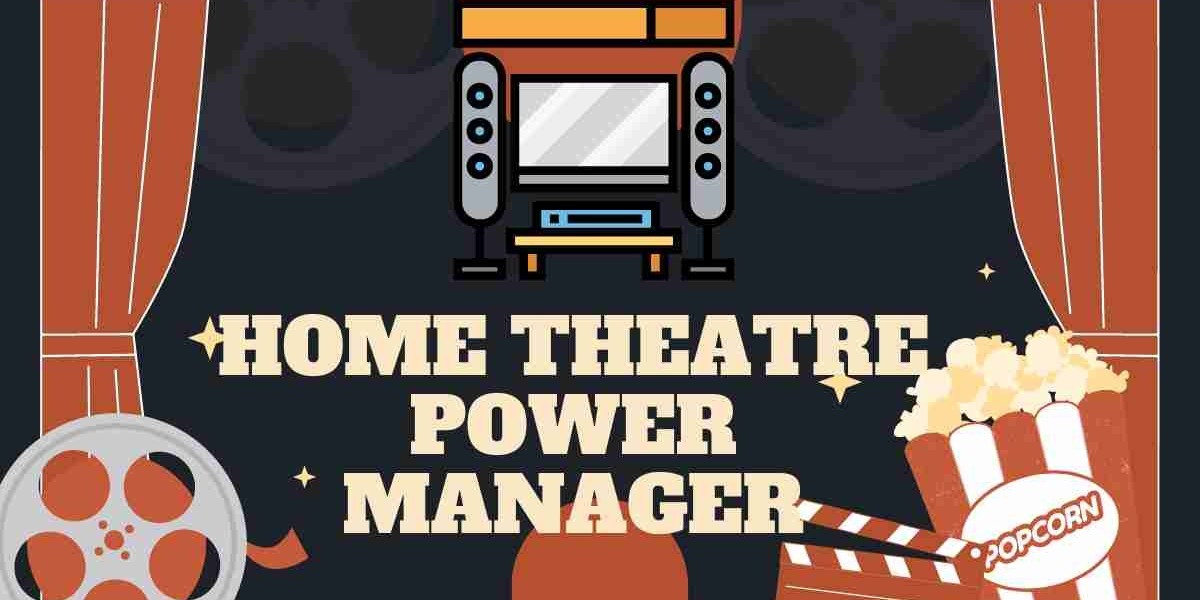In today's digital age, home theaters have become a popular addition to many households, transforming living rooms into immersive entertainment centers. A well-equipped home theater can deliver an unparalleled cinematic experience, providing hours of enjoyment for families and friends alike. However, the increasing number of electronic devices in a home theater setup can lead to energy inefficiency and potential safety hazards. This is where a Home Theatre Power Manager comes into play, offering a comprehensive solution to optimize power consumption and enhance safety.
Understanding the Home Theatre Power Manager:
A Home Theatre Power Manager is a sophisticated electronic device designed to monitor and control the power supply to various components within a home theater system. It acts as an intelligent intermediary between the main power source and the connected devices, ensuring optimal electricity usage and safeguarding against potential electrical issues.
Key Features and Functions:
- Power Distribution: One of the primary functions of a Home Theatre Power Manager is to distribute power efficiently. Instead of relying on multiple power strips and surge protectors, this device can handle the power requirements of various components simultaneously. It often comes with multiple outlets, allowing you to plug in your TV, speakers, gaming consoles, amplifiers, and other accessories.
- Master and Slave Outlets: Some Home Theatre Power Managers offer the feature of master and slave outlets. The "master" outlet is usually connected to the TV or the main device in the setup. When this device is turned on or off, the power manager automatically activates or deactivates the "slave" outlets, cutting off power to the peripheral devices accordingly. This feature prevents energy wastage when devices are left on standby.
- Voltage Regulation and Surge Protection: Fluctuations in electricity supply can cause damage to sensitive electronic equipment. A quality power manager includes voltage regulation and surge protection to shield your devices from sudden spikes or drops in voltage, safeguarding them from potential damage.
- Energy Monitoring: To help homeowners understand their power consumption patterns, some power managers come equipped with energy monitoring features. These provide real-time data and cumulative usage statistics, empowering users to make informed decisions about their energy consumption and take steps to reduce it.
- Timer and Scheduling: The ability to schedule power on and off times for different devices is a useful feature in a Home Theatre Power Manager. With this functionality, you can program your power manager to turn off devices automatically during specific hours of the day, further minimizing energy waste.
Benefits of a Home Theatre Power Manager:
- Energy Efficiency: By actively managing power distribution and reducing standby power consumption, a power manager helps save energy and lower electricity bills.
- Equipment Protection: The voltage regulation and surge protection features safeguard expensive home theater equipment from potential electrical damage.
- Convenience and Automation: With the ability to set schedules and timers, a power manager offers a convenient way to automate the power control of your home theater setup.
- Fire Safety: Overloaded power strips and outlets are a common cause of electrical fires. A power manager mitigates this risk by providing a safer power distribution mechanism.
- Environmentally Friendly: By curbing unnecessary energy consumption, a power manager contributes to a greener and more sustainable environment.
Conclusion:
A Home Theatre Power Manager is an essential tool for anyone seeking to maximize the efficiency of their home entertainment system. Not only does it save energy and money, but it also ensures the safety of your valuable electronic devices. By investing in a reliable power manager, you can enjoy your favorite movies, shows, and games with peace of mind, knowing that you are optimizing power usage and contributing to a safer and eco-friendly home theater experience.



